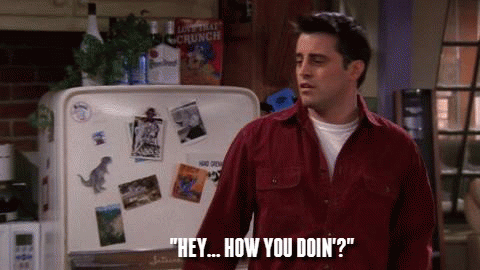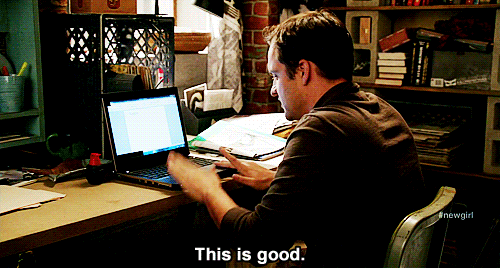College is an expensive time. Not only is college itself expensive, but when you factor in all those expenses you never thought about in high school — food, drinks, activities — it quickly adds up.
We asked 19 college students about their budget (or lack of) and how they earn and spend their money.
![]()
“I worked 50+ hours a week the summer before college and saved up money to buy my own cell phone and laptop — my parents said if I wanted them, I would have to pay for them myself. I don't receive any money from my parents, not even tuition or room and board. Occasionally if I'm struggling, they'll give me some money for food or lend me money until my next paycheck. I appreciate that I'm learning to pay my own way, and I feel like I'm earning my education — not having it handed to me on a silver platter. It's hard not to resent students whose parents pay for everything and have never had to work a day in their lives, but I've learned the value of money and working hard. It is difficult to keep up spending-wise with my friends, but I also realize that money isn't everything.”
-MJ, University of Notre Dame Class of 2017
“I don't work during the school year. I work during the summer to make enough money to pay for my personal expenses at school. I try to keep myself on a budget but get to spend money on clothes and going out to eat from time to time. My parents send me cash every once in a while as well but I don't rely on them. My friends and I are all pretty much in the same position money-wise so we understand saving money and splurging from time to time.”
-Shannon, Stony Brook University Class of 2018
“I have a job on campus that pays minimum wage and I rely on this job for spending money. My parents provide me with money occasionally, but I find it extremely difficult to keep up with my friends’ spending.”
-Carlen, University of North Carolina at Wilmington Class of 2017
“I have a job on campus but it's not a very consistent job since I only work when there are sporting events on campus and it's a minimum wage job so it doesn't bring in very much. I don't really have a budget but I'm trying to get into the habit of creating and sticking to one because I feel like I waste my money as soon as I get it. I'm also trying to save up so I can spend my last semester abroad in Rome so I need to start a savings plan and cut unessential spending.”
-Anai, St. John's University Class of 2017
“I am fortunate enough to be able to go through college without any loans, and what a glorious feeling that is. However, I still have three jobs on campus, and try to spend my money wisely. My parents support me and give me what I ask. With that being said, I truly enjoy having my own spending money for shopping and multiple Chipotle excursions. I probably spend the most money on food, and I'm okay with that.”
-Julie, Saint Vincent College Class of 2018
![]()
“I am on a relatively tight budget but I do have a little wiggle room to do what I want. My friends and I are mostly in the same boat financially, so we try our best to do things that are free or inexpensive and stay away from shopping.”
-Lexie, Point Park University Class of 2016
“I have a job outside of campus at CVS, as a shift manager. I work on Sundays and make $15 an hour. I have been saving my entire life in a separate account, however I rely solely on my CVS money for spending. I refuse to take money from my parents; they're already paying $60,000 a year for me. I am often socially restricted because of work.”
-Melanie, Emerson College Class of 2019
“My parents give me money to do college things most of the time. Sometimes I don't tell them I need a new textbook and pay for it myself though. Other than that, I really try not to spend money at all, to be honest. My friends make fun of me for it.”
-Victoria, Siena College Class of 2016
“I saved a lot of money before college, and have dipped into those savings to buy the necessities for living (besides food and bills), but am still saving that money up for long term when I'm out of college. I still get money from my parents, thankfully. They help me out and buy groceries and things such as toilet paper or paper towels. By doing this I am still independent, but able to save up money to be fully independent and start a life/family when I graduate. I am able to do extras like shopping, movies, etc. because of my long-term savings and budgeting. I like to make sure I have a certain amount of money always in my checking account.”
-Brianne, Ryerson University Class of 2019
“I always have a job so that my savings account is never static. I had a lot of money saved before I started school but my parents and I alternate paying my tuition so it's quickly depleting. A lot of the time I see kids who have their parents’ credit card or something. And of course I'm not as willing to spend money that I’m trying to save. I’d rather be self sufficient than rely on my parents. They help me out enough and I completely appreciate it. But I recognize that I could've gone to a cheaper school and so I owe them a lot for letting me go here. In reality I try and spend as little as possible, but I’m not cheap. It bothers me when people use the excuse that their broke college kids to justify tipping low or mooching food.”
-Abby, University of Notre Dame Class of 2018
“I juggle a few jobs and a paid internship. I live away from my parents so most of the money I use is what I earn on my own. Sometimes there are days where I have to hold back from purchasing something or going out but for the most part it hasn't been difficult with money.”
-Amy, Waseda University Class of 2017
“I work between 20-30 hours a week in retail and am an editor for the school newspaper that gives a monthly stipend. I can do extra things like shop and eat out but not a lot. My refund checks are stretched to last me each quarter for rent and I pay the other utilities with my job. I am very reliant on my jobs because I am trying to be independent from my parents.”
![]()
-Aspen, Savannah College of Art & Design Class of 2016
“I'm very thankful to have parents that pay for my tuition, room and board, food expenses, and most of my personal expenses. My parents believe in doing this because they want me to stay focused on my academics. My parents give me a set monthly allowance for food, so I have to budget that accordingly. However, I have to ask for money for personal expenses on an individual basis, so that's more to their discretion. Sometimes I can't do extras like go shopping or to the movies, but I'm okay with that.”
-Juliane, George Mason University Class of 2017
“I had a summer job where I made the money that I spend on food and shopping and other fun things. My parents pay for a credit card that is for groceries, books, and other essentials. I feel like I am able to keep up with my friends on the day-to-day things, but when it comes to trips and larger purchases I fall behind. At BU it’s not uncommon to have kids totally supported by their wealthy parents and be able to buy expensive shit whenever they want.”
-Sophie, Boston University Class of 2018
“Yes I'm on a super tight budget! I am working part-time as a teller for a credit union and I pay everything myself without my parents. So I have to budget my paychecks I get every two weeks to pay for my rent, credit cards, insurance, phone, gas, groceries and other bills. Before coming into college, I saved enough of my hard-earned money to pay for all my textbooks and six months worth of rent. My parents definitely still help me out when I ask, but I want to help them out by not asking for help as often. I go shopping maybe once a month, but it's usually for when I splurge on one item, I can't remember the last time I went on a shopping spree. I don't find it difficult because I'm friends with a lot of people who work and pay their own bills as well. So we split a lot of bills when we go out or try to have fun on a budget.”
-Rachel, Virginia Commonwealth University Class of 2016
“Every summer before the school year I work my ass off to save up money for the school year. My parents and grandma (God bless her heart) will give me some spending money every time I come home for breaks, but for the most part I rely on my summer reserve to pay for my stuff. For the most part, my friends are just as wise with their money, but there are some other acquaintances who spend and splurge on a lot. I have heard many times girls commenting on how their parents pay for their credit card bills, or they need to wait until their parents give them money, and that's so foreign to me, because I only rely on my parents to help out with rent and tuition. Everything else- groceries, shopping, going out, and utilities, I put that on myself to cover. Yeah sometimes I can't afford things I want but don't need, but it never disturbs me. I think college is the best time to learn how to handle your financials and to develop good spending and budgeting skills.”
-Victoria, University of Virginia Class of 2016
“I have a tight budget and have a job on campus. I rely on that job for my spending money, and also some from working over the summer and winter, however most of it goes to paying a part of my tuition (which ends up being only $1,000 or $2,000). I don't get money from my parents. I don't have money to do anything. I don't even have money for supplies. I dig through the garbage and recycling and other people's remnants for supplies. Most of my friends are broke as well.”
-Yee, Philadelphia University Class of 2018
“I have been doing internships so I have no time for a job. My parents give me a monthly allowance, which I usually spend on food since my campus food is terrible. I also have a slight shopping problem that I’m working on. It can be difficult to keep up spending wise because my friends love to go out to dinner, and New York City is pretty expensive.”
-Taylor, St. John’s University Class of 2018
“Sometimes I can't afford to go out with friends, or I have to know a few weeks in advance so I can save up for the occasion. Many of my college friends do not have to think twice about their spending habits, so sometimes it can be a drag. I currently have a nannying job every afternoon, but that money goes directly into my savings for my trip to London next semester.”
-Claire, Boston University Class of 2017






















































 Fantastic Beasts and Where to Find Them is a prequel to Harry Potter's adventures at Hogwarts, and tells the story of Newt Scamander (played by Redmayne), a popular magizoologist who specializes in the study of magical animals. The film examines Scamander's adventures, which begin in New York, as he documents each beast he encounters during his travels.
Fantastic Beasts and Where to Find Them is a prequel to Harry Potter's adventures at Hogwarts, and tells the story of Newt Scamander (played by Redmayne), a popular magizoologist who specializes in the study of magical animals. The film examines Scamander's adventures, which begin in New York, as he documents each beast he encounters during his travels. 











































